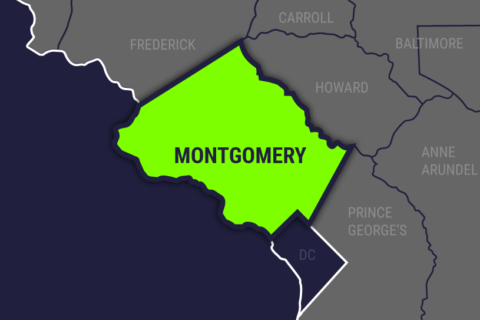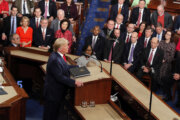SILVER SPRING, Md. — President Donald Trump’s temporary travel ban is a cause for alarm for many international students at Montgomery College’s Takoma Park/Silver Spring campus.
International students make up 28 percent of the student body, making the community college one of the most diverse in America. A meeting was held on campus Wednesday evening to address student and faculty concerns about the executive order.
Business major Sidy Ossad from Mali says he understands that the president is trying to do what’s best for the country, but he thinks the order is wrong. “In my opinion, it’s a little bit too extreme,” he said.
Ossad is here on an F1 student visa.
“A question that is in every F1 student’s mind is, ‘What if I go back to my country. Will I be able to come here to finish my education?'” he said.
Ossad says he knows some international students that are so upset or fearful that they stopped coming to classes this week.
Ange Ngatchou from Cameroon is studying life science and hopes to become a doctor. She says her grandfather, who is a U.S. citizen, is visiting their home country and is supposed to have returned by now, but the process is taking longer than expected.
He’s being asked to produce paperwork proving that he’s an American, and she believes the delay has to do with Trump’s order.
“It’s another problem because my grandmother is sick, and he wanted to be by her side,” she said.
Computer engineering major Kalkidan Zeleke, who is from Ethiopia, is worried about possible further restrictions on immigration. “What if … we’re next? We don’t know,” she said.
Zeleke thinks the order doesn’t make any sense. “It’s not going to solve anything; it’s just going to make people angry, which is not going to be good for this country to be safe.”
In a statement about the executive order, the school’s president, DeRionne Pollard, said:
“Montgomery College will continue to be a leader in supporting the needs of international visitors, immigrants and refugees in our communities, in keeping with our long-standing commitment to radical inclusion.”







